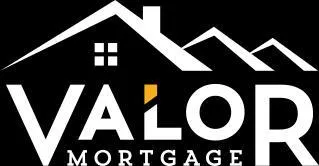15-Year Mortgage or 30-Year Mortgage: Which is Better?
15-Year Mortgage or 30-Year Mortgage: Which is Better?
15-Year vs. 30-Year Mortgage: Which Is Right for You?
When it comes to choosing a mortgage term, homebuyers, whether you are looking to buy your first home or next home, often find themselves contemplating between a 15-year mortgage and a 30-year mortgage.
Both options have their advantages and drawbacks, and it's crucial to understand the implications of each before making a decision.
In this guide, we’ll dive into the key differences between these mortgage terms, weigh the pros and cons, and provide you with the necessary information to determine which option suits your financial goals.
What's the Difference between a 15-Year and 30-Year Mortgage?
A 15-year mortgage, as the name suggests, has a term of 15 years, requiring borrowers to make monthly payments over 180 months until the loan is fully repaid.
On the other hand, a 30-year mortgage has a longer term of 360 months, resulting in smaller monthly payments spread out over a more extended period.
Pros and Cons of 15-Year and 30-Year Mortgages
Pros of a 15-Year Mortgage
Accelerated Equity Building
With a 15-year mortgage, you'll build equity in your home at a much faster pace compared to a 30-year mortgage. The shorter term means you will be making larger monthly payments, resulting in a more rapid reduction of the principal balance.
Consequently, you will own your home outright earlier, providing you with a greater sense of financial security and allowing you to leverage your home equity sooner.
Significant Interest Savings
Due to the shorter repayment period, 15-year mortgages often come with lower interest rates compared to their 30-year counterparts.
Over the life of the loan, this can translate into substantial interest savings, potentially amounting to tens of thousands of dollars.
Mortgage Freedom in Retirement
Choosing a 15-year mortgage can be particularly advantageous if you plan to have your mortgage fully paid off by the time you retire.
By eliminating your mortgage payment, you'll significantly reduce your monthly expenses and gain financial freedom during your retirement years.
Cons of a 15-Year Mortgage
Higher Monthly Payments
Since you are repaying the loan in half the time of a 30-year mortgage, the monthly payment amount will be significantly larger.
This increased financial obligation may put a strain on your monthly budget.
Limited Financial Flexibility
Due to the higher monthly payments, a 15-year mortgage may limit your financial flexibility. This can leave you with less room to handle unexpected expenses or pursue other financial opportunities.
Stricter Qualification Requirements
Lenders often have more stringent qualification requirements for 15-year mortgages, including a solid credit score and a low debt-to-income ratio.
Pros of a 30-Year Mortgage
Lower Monthly Payments
The longer term allows for smaller monthly payments. This can provide more breathing room in your budget for other financial goals or expenses.
Enhanced Financial Flexibility
Lower monthly obligations can give you the flexibility to handle unexpected expenses or pursue investment opportunities without financial stress.
Easier Qualification
Lenders often have more lenient qualification requirements for 30-year mortgages, making them more accessible for first-time buyers or individuals with lower incomes.
Cons of a 30-Year Mortgage
Higher Total Interest Payments
The longer repayment period leads to higher total interest costs, significantly increasing the overall cost of your home.
Slower Equity Building
With smaller monthly payments, building equity in your home will be a slower process compared to a 15-year mortgage.
Potentially Higher Interest Rate Risk
A longer mortgage term may expose you to interest rate changes over time, which could increase your monthly mortgage payments.
Mortgage Comparison: 15-Year vs. 30-Year Mortgage Example
Suppose you are purchasing a home for $300,000 with a 20% down payment ($60,000) and an interest rate of 4%:
| Mortgage Term | Monthly Payment | Interest Paid | Total Paid |
|---|---|---|---|
| 15-Year Mortgage | $1,870 | $93,000 | $393,000 |
| 30-Year Mortgage | $1,145 | $215,000 | $515,000 |
It's important to analyze these numbers and assess how they align with your financial goals and capabilities.
Why You Might Apply for a 30-Year Mortgage
If you plan to stay in your home for a shorter period, prioritize lower monthly payments, or have other financial obligations, a 30-year mortgage can provide the flexibility you need.
Options for Paying Off a 30-Year Mortgage Early
Make additional principal payments each month or switch to bi-weekly payments to effectively make 13 full payments per year instead of 12. These strategies can shorten your loan term and save you thousands in interest.
Can You Refinance from a 15-Year to a 30-Year Mortgage?
Yes, you can refinance to a longer term. This can reduce your monthly payments but may lead to paying more interest over time. Consider closing costs and long-term impact before deciding.
Which Mortgage Option Is Best For You?
If you can afford higher payments and want to build equity faster, a 15-year mortgage might be the best choice. If you value lower monthly payments and flexibility, a 30-year mortgage could suit your needs.
Consult with a trusted loan officer to evaluate your situation. If you're moving to Tennessee or Kentucky, the team at Valor Mortgage can help assess your options.
Take the time to evaluate your future plans and ensure that the chosen mortgage supports your long-term financial goals.
With the right strategy, you’ll be one step closer to homeownership and long-term financial stability.

post a comment

Follow us on
Join our mailing list
Contact Us

Copyright 2025 | Valor Mortgage, LLC
Valor Mortgage is powered by Encore Lending Group, LLC NMLS 1249911,
Christopher Armantrout Loan Officer NMLS 1210804


